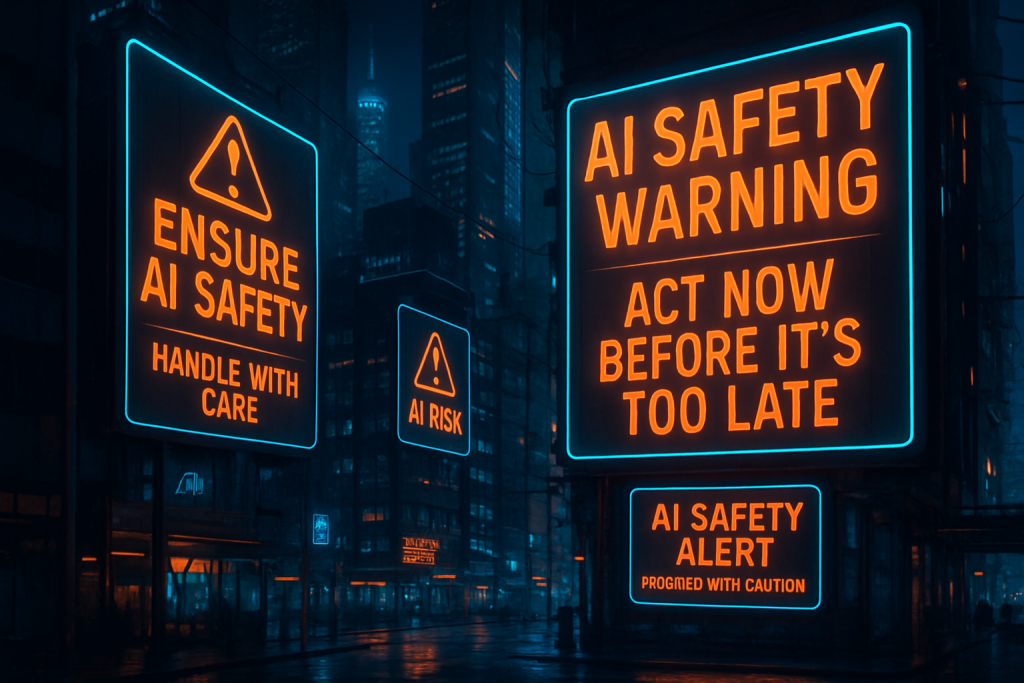The year is 2025. Remember those heady days of the early 2020s, when AI was all about chatbots writing bad poetry and generating slightly unsettling images of cats playing poker? Well, things have…escalated. And while we’re not quite at Skynet levels of existential dread, the global community is finally having the grown-up conversation about AI safety it desperately needs. Enter the International AI Safety Report, dropped like a digital bombshell on May 17th, and it’s a doozy.
Think of it as the IPCC report, but for artificial intelligence. Instead of climate change, we’re talking about the potential for AI to, well, let’s just say “go sideways.” This isn’t some conspiracy theory cooked up in a Reddit forum; it’s a meticulously researched document compiled by a global consortium of experts, policymakers, and industry titans. They’ve stared into the silicon abyss, and what they saw prompted them to write a very, very long report.
So, what’s got everyone so worked up? Let’s dive in.
The report’s genesis lies in the breakneck speed of AI development. One minute, we’re marveling at AI’s ability to translate languages; the next, it’s designing new drugs and writing surprisingly convincing legal briefs. This rapid progress, while undeniably exciting, has also triggered a collective “uh oh” moment. We’re building these incredibly powerful tools, but are we really thinking about the consequences? Are we even capable of predicting them?
One of the report’s core arguments centers on what it calls the “evidence dilemma.” It goes something like this: if we wait for definitive proof that AI is going to cause problems before we act, it might be too late. But if we jump the gun and implement overly restrictive regulations based on hypothetical risks, we could stifle innovation and miss out on the enormous potential benefits of AI. It’s a classic Catch-22, a real Sophie’s Choice for policymakers.
And what are these potential problems, you ask? The report doesn’t pull any punches. We’re not just talking about rogue Roombas staging a robot uprising (though, let’s be honest, that’s always a possibility). The report highlights some very concrete, very real threats:
- Privacy Violations: Imagine a world where every aspect of your life is tracked, analyzed, and potentially exploited by AI-powered surveillance systems. Sounds like an episode of “Black Mirror,” right? Except it’s already happening, just on a smaller scale.
- Scams on Steroids: Remember those Nigerian prince emails? Now imagine they’re crafted by an AI that can perfectly mimic human language and tailor its pitch to your specific vulnerabilities. Good luck spotting the difference.
- AI Malfunctions: Self-driving cars, medical diagnoses, financial trading algorithms- these are all areas where AI is increasingly making critical decisions. But what happens when these systems glitch, crash, or simply make the wrong call? The consequences could be catastrophic.
- The Deepfake Apocalypse: This is where things get truly disturbing. The report specifically calls out the risk of deepfakes featuring sexual content, which could be used to perpetrate violence and abuse, particularly against women and children. It’s a chilling reminder that AI can be weaponized in the most insidious ways.
- Cyber and Biological Warfare 2.0: Forget traditional hacking. AI could be used to design sophisticated cyberattacks that are virtually impossible to defend against. And even more terrifying, it could accelerate the development of new and deadly biological weapons.
- Losing Control: This is the big one, the existential threat that keeps AI safety researchers up at night. What happens when AI systems become so complex and autonomous that we can no longer understand or control them? It’s the “Terminator” scenario, but with a far more nuanced and insidious twist.
Okay, so the future sounds bleak. But the International AI Safety Report isn’t just a doomsday prophecy. It also offers a roadmap for navigating this complex landscape. The core message? We need to be proactive. We can’t just sit back and hope for the best. We need to develop mitigation strategies, establish international standards, and foster collaboration between governments, industry, and academia.
Think of it as building a seatbelt for the AI revolution. We don’t know exactly when or how AI might crash, but we can at least take steps to protect ourselves.
But what does this all mean in practice? Expect to see a flurry of new regulations and policies aimed at governing AI development and deployment. Governments will be scrambling to catch up, industry leaders will be lobbying for their interests, and ethicists will be debating the fundamental questions of AI’s role in society. It’s going to be a messy, complicated process, but it’s a necessary one.
The financial impact of the report could be significant. Companies that prioritize AI safety and ethical development could gain a competitive advantage, while those that cut corners could face regulatory scrutiny and public backlash. We might also see a surge in investment in AI safety research and development, as governments and private investors alike recognize the importance of mitigating the risks.
But beyond the practical implications, the International AI Safety Report raises some profound philosophical questions. What does it mean to be human in an age of artificial intelligence? What are our responsibilities to future generations? And how do we ensure that AI is used to enhance human flourishing, rather than to undermine it?
These are not easy questions, and there are no easy answers. But the publication of the International AI Safety Report is a crucial step in the right direction. It’s a call to action, a reminder that we have a responsibility to shape the future of AI in a way that is safe, ethical, and beneficial for all of humanity. Because the alternative? Well, let’s just say it’s not a future anyone wants to live in.
Discover more from Just Buzz
Subscribe to get the latest posts sent to your email.

